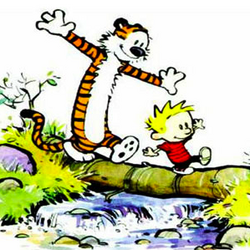| Guiding Thought Question: Why do teachers/educators need to be sure to consider the age of the students they are working with when planning their lessons/activities? Guiding Inquiry: How do people's cognitive abilities change as they age? Today's Learning Objective: Students will be able to explain the principles of Piaget's States of Cognitive Ability and use them in the development of their educational activity. |
|
0 Comments
Leave a Reply. |
Behavioral Science Course ForumWelcome to the Forum! Here is where you will be answering your daily warm-up questions. Please do not enter your last name for privacy reasons, and you may use a nickname if you would like (Just make sure Mr. Tredinnick is aware of the nickname you are using). Write out thoughtful responses to the forums on the days they are assigned. If you miss a day please take it upon yourself to complete the Forum you missed. Each Forum has the targeted Learning Objective(s) there so you can see what the focus of the day's class will be. Archives
May 2022
Categories |

 RSS Feed
RSS Feed
